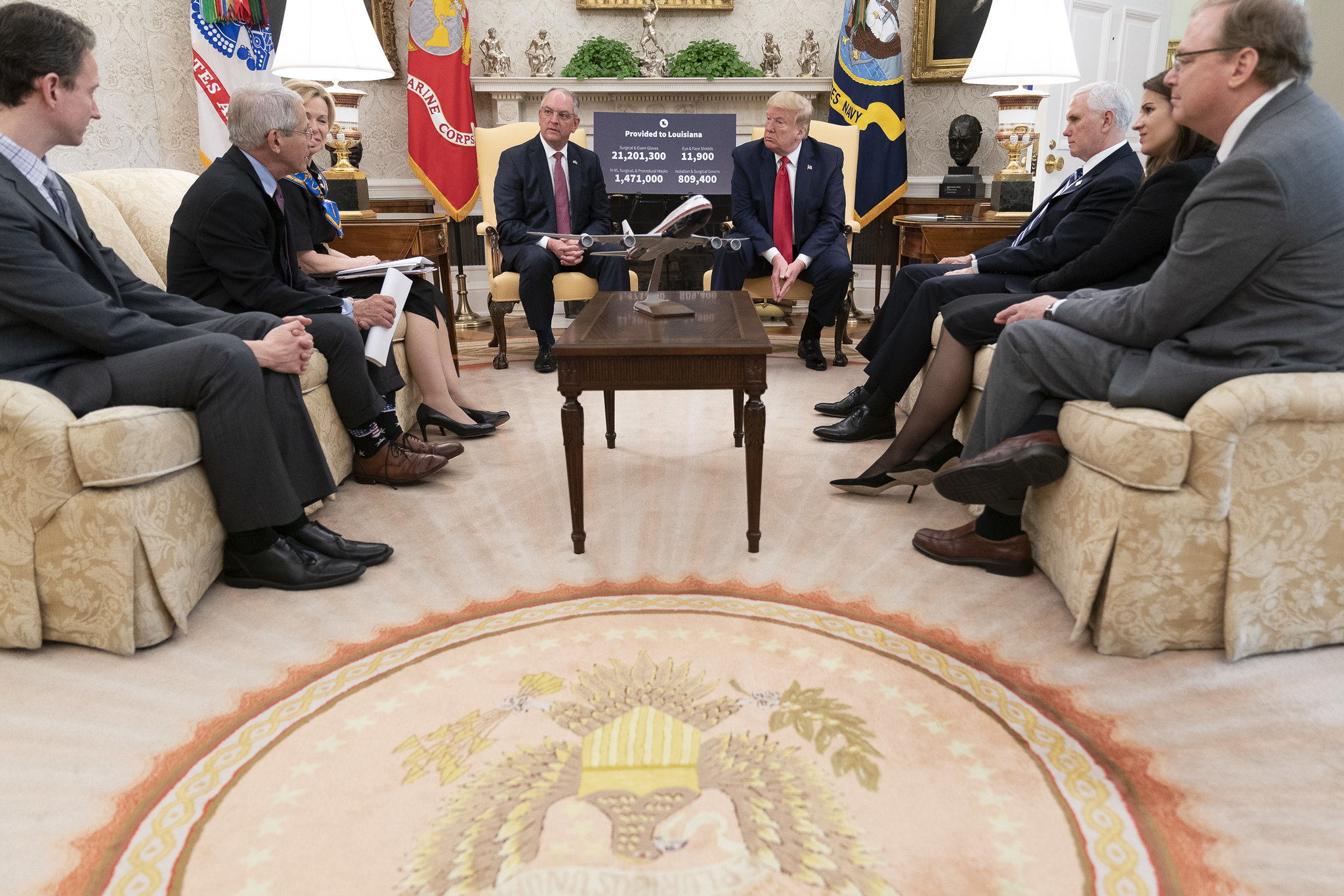By David Jacobs | The Center Square
Louisiana on Friday will move into the first phase of the White House-approved process to begin loosening some of the business restrictions meant to control the spread of COVID-19, Gov. John Bel Edwards announced Monday.
The current “stay-at-home” order, which closes some types of businesses and limits many others, was set to expire at the end of the week.
Under the new order, some businesses, such as massage and tattoo parlors, amusement parks, and bars that don’t serve food are to remain closed. But churches and other types of businesses can reopen at 25 percent of their usual capacity to allow for six feet between individuals and 10 feet between tables. Restaurants can reopen their indoor dining rooms.
Employees who deal with the public will be required to wear a mask covering their mouth and nose. The ban on gatherings larger than 10 people will not change for now. Business owners can sign up for details at OpenSafely.la.gov, but they are not required to seek government approval for their reopening plans.
Businesses deemed “essential” under federal guidelines still can remain open.
“I believe we are striking the right balance with this plan,” Edwards said, referring to public health and economic recovery.
According to state health officials, at least 2,242 Louisiana residents have been killed by COVID-19, the illness caused by the new coronavirus. Officials also list 66 “probable deaths.”
Almost 32,000 cases have been confirmed, and more than 22,600 of those patients were presumed to have recovered. Officials said 1,310 COVID-19 patients were in hospitals and 157 of those were on ventilators.
The White House’s criteria for beginning to fully reopen a state’s economy include seeing fewer COVID-19 cases, or a lower percentage of positive test results; a decrease in the incidence of flu- or COVID-like symptoms; and having a health care system that is able to meet the demand without rationing care.
Edwards’ “stay at home” order would have expired May 1, but the governor decided to extend it two additional weeks, citing COVID-19 hot spots in certain regions. While there remains cause for concern in certain regions, state officials say their new capability to conduct 200,000 tests for the virus monthly and to track down people who may be infected and ask them to quarantine makes the state better able to limit potential spikes in the case numbers.
While partially scaling back restrictions is supposed to help companies stay in business, many will struggle to even cover their expenses at 25 percent capacity.
“Governor Edwards’ announcement that businesses can begin to reopen starting Friday is going to ease the financial pressure on small business owners, but many of our members are worried they won’t make it unless they can fully reopen soon,” Dawn Starns, who directs the Louisiana chapter of the National Federation of Independent Business, said. “NFIB is committed to working with the governor’s Resilient Task Force and the Legislature’s Economic Recovery Task Force to develop a strategy that allows more businesses to begin to reopen and while keeping customers and employees safe and avoiding a spike in new coronavirus cases.”
Stephen Waguespack, president of the Louisiana Association of Business and Industry, said he was glad to see the state begin to reopen more of its economy.
“Now, begins the hard part of rebuilding consumer confidence, helping small businesses stay afloat, keeping the jobs we have and attracting the new ones we desperately need,” he said. “It will take an Apollo-like mission to save this economy, on the part of our legislature, governor and regulators, to rethink both new and chronic challenges to economic opportunity.”
Daniel Erspamer, CEO of the fiscally conservative Pelican Institute for public policy, which had urged Edwards to move to phase one May 1, said the process “dragged on longer than necessary” but said he was “encouraged to see state leaders prioritizing the livelihoods of hundreds of thousands of Louisianans and their families.”
Edwards stressed that people who are at high risk of serious COVID-19 complications, such as people older than 65 and those with certain chronic health conditions, should continue to stay home as much as possible. Sick people should stay home.
Everyone should continue to practice social distancing from anyone who is not part of their household, he said. Taking steps to mitigate the spread of the virus still is necessary if state officials are to move to the next phase, Edwards said.
“We are not declaring victory,” he said. “This is not ‘mission accomplished.'”

